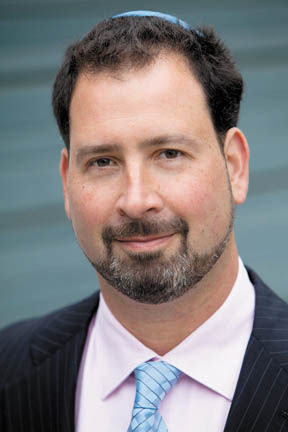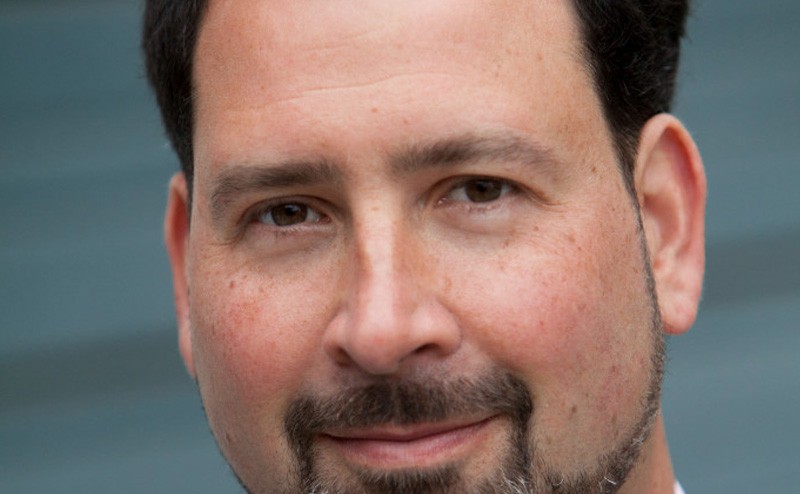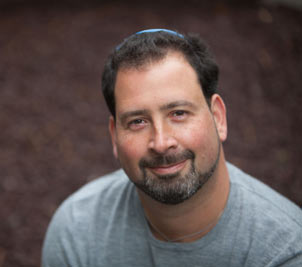
Rabbi Spike Anderson
On July 1, Temple Emanu-El welcomed its new senior rabbi, Spike Anderson. A leader with a track record of getting things done, his calendar was already filled with meetings with other community leaders, not just from the temple but from business and government as well.
Anyone who expects Rabbi Anderson to be a typical man of the cloth would be wrong. One of his least typical attributes is his name. The story behind it is that when his father was a boy, he wanted a tough name and decided on Spike. When it didn’t stick, he vowed to name his son Spike. His son was born Nicholas, but has gone by the name of Spike ever since.
In addition to his unusual name, Rabbi Spike Anderson has taken an unusual path to his position at Temple Emanu-El. Born and raised in Boston, he began his career as a Silicon Valley entrepreneur, founding a high-tech recruiting firm that worked with venture capitalists. In 2008, five years after starting his company, he had an epiphany.
“I had a calling to serve the Jewish people, the State of Israel and God,” he said.
He then spent a year of discernment, traveling the world and thinking about what to do. He went back to school and was ordained at Hebrew Union College-Jewish Institute of Religion in New York City. His next move was back to California, to be a rabbi at Stephen S. Wise Temple in Los Angeles.
While there, he threw himself into all aspects of Jewish life. One of his favorite roles was as the children’s rabbi, teaching and interacting with children in the temple school.
“I love working with kids and young families and helping them to love their Judaism,” he said.
But his role went far beyond the walls of the temple. Through the Israel and Peoplehood Pillar, he worked to connect congregants to Jews throughout the world. As part of the program, he facilitated communication between the temple’s young people and young people in Lithuania and Tel Aviv and led programs to reach out to Jews living in countries with acute anti-Semitism.
Some of Anderson’s efforts beyond the temple walls have been local. During the Great Recession, he began to see congregants losing their jobs and their homes, with devastating effects on their health and relationships.
“There was a lot of pain,” he said.
In response, he spearheaded Kehillat Wise, a program whereby temple members with expertise in finance, real estate and mental health, offered assistance and advice at no charge to other members in need. The program was so successful that it was emulated by Jewish federations and synagogues throughout the country.
Another innovative program created by Rabbi Anderson is “Daditude,” a weekend playground gathering of young dads and their children for breakfast, fellowship and spiritual support.
All of these programs are a reflection of his vision of connecting congregants to the wider world and their role in it as practicing Jews.
“I want to connect congregants to their Judaism in truly meaningful and internally personal ways,” he said. “I want to help them employ Judaism to realize their potential as human beings and tap into the immense beauty that life has to offer.”
Now that Rabbi Anderson has been here for a month, he also has some thoughts about Atlanta.
“I love the energy and entrepreneurial spirit of Atlanta. It has the feel of a place on the rise,” he said. “People are proud to be American and part of this community.”
He is also impressed by the friendliness of the people.
“From the day we moved in,” he said, “neighbors have been stopping by to say hello and bring us fruit and brownies and other goodies.”
If you meet Rabbi Anderson as he works his way through the community, you’ll understand why people are so friendly to him. There’s no other way to respond to someone whose heart is so obviously so big.


